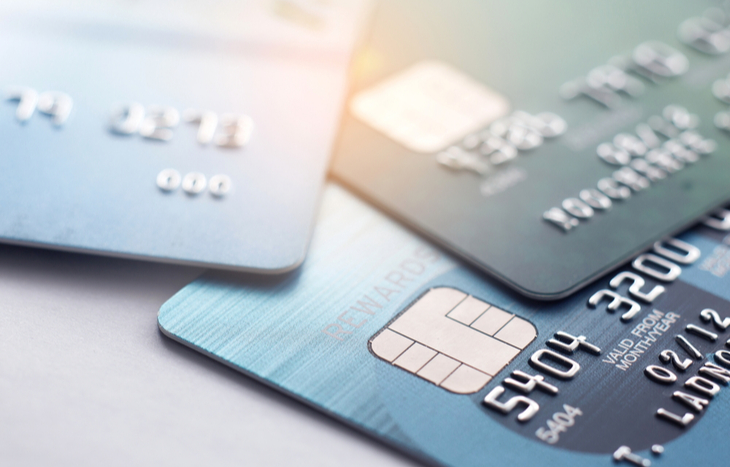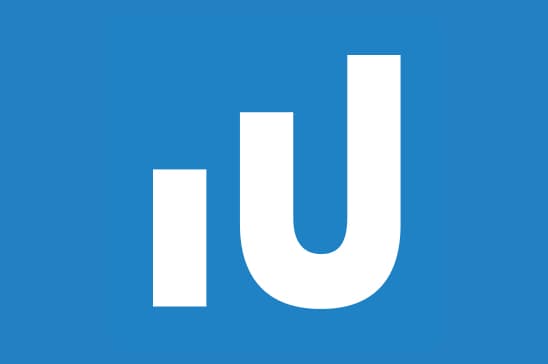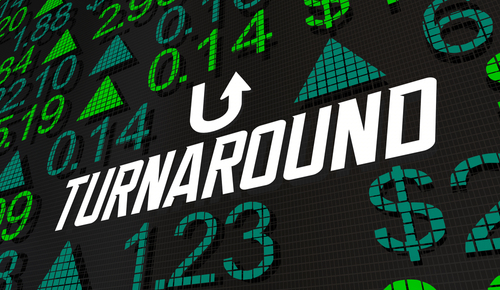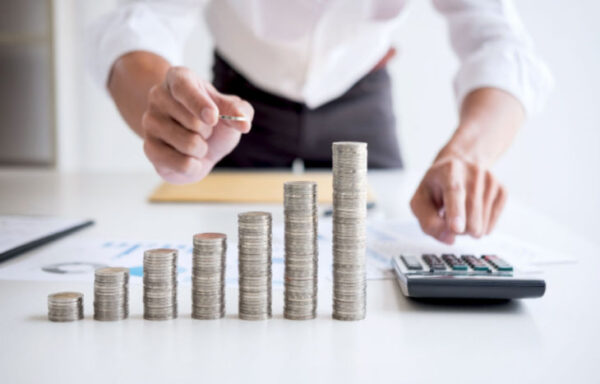Credit Card Pros and Cons
When looking at the pros and cons of credit cards, a few things stand out. If you’ve ever owned a credit card, you know it’s easy to slip into bad habits. Don’t have enough money in your account? Put it on the card. Waiting for payday? Put it on the card. Credit cards aren’t all bad though. In responsible hands they can provide a lot of benefits.

8 Credit Card Pros and Cons
Let’s take a deeper look at the most obvious credit card pros and cons.
Pros of Credit Cards
Credit Building
Whether you like it or not, we live in a culture of debt. Much of our society relies on debt to build credit. As long as you’re paying off your card regularly and your account is in good standing, it will benefit your credit score. This can help you get approved for a loan, which you may need to assist you in your career or overall wealth building endeavors.
Security
The days of carrying around a lot of cash are over. Many people don’t carry any cash at all. Avoiding cash not only lightens the actual weight of your wallet, but it also could help you feel safer. If your card gets stolen or misplaced, there are customer service representatives always available to assist and rectify the situation. The same cannot be said for cash. Additionally consider adding a fraud alert to your credit report.
Rewards
Cash back, airline miles, restaurant and hotel points are just some of the most common rewards credit cards offer. In fact, rewards cards have become even more prolific in recent years. Capital One is currently offering 50,000 bonus miles when you spend $3,000 on your card within three months.
According to The Point Guy these are the best rewards cards for 2020:
- Chase Sapphire Preferred Card – Best for travel rewards
- Capital One® Venture® Rewards Credit Card – Best for hotel.com rewards
- Wells Fargo Propel American Express® Card – Best for gas rewards
- American Express® Gold Card – Best for U.S. supermarkets and worldwide dining rewards
- Capital One® Savor® Cash Rewards Credit Card – Best for cash back on entertainment
- Blue Cash Preferred® Card from American Express – Best for commuters
- Chase Freedom Unlimited – Best for pairing with other Chase cards
- Chase Freedom – Best for rotating categories
- Citi® Double Cash Card – Best for everyday expenses
- Marriott Bonvoy Boundless Credit Card – Best for Marriott rewards
Emergencies
We’ve all been there. A leaky roof, a large medical bill, an expensive car repair. At some point in your life, you’ve probably been in a financial emergency. This is where a credit card can really save you. In fact, many people who aren’t advocates of credit cards still advise holding on to one for emergency situations. While credit cards can save you when you’re in a pinch, stay on top of your payments and get ahead of those interest rates.
Cons of Credit Cards
Debt
This is without a doubt the #1 reason why you should not own a credit card. According to Debt.org, “more than 189 million Americans have credit cards. The average credit card holder has at least four cards. On average, each household with a credit card carries $8,398 in credit card debt.” Debt can put a massive burden on individuals and families. Credit card debt can also come with high interest rates, which can make debt repayment feel impossible at times. If you do have a lot of credit card debt, consider paying it off with the debt snowball method. The debt snowball method will teach you how to pay off your credit card debt in order of the smallest balance to the largest.
Extremely High Interest Rates
Credit card interest rates are at an all time high. According to the Federal Reserve, last year the average APR across all accounts was 15.09%. That is the highest recorded rate since 1994. If you’re on top of your payments each month, these percentages shouldn’t bother you. But as soon as you start to get behind, high interest rates can add up, creating a snowball effect that could bury you. A simple call to your credit card company can help. You may end up getting switched to a lower interest rate or even a 0% rate if you’re lucky.
Too Many Cards Can Be Bad
Although cards can provide rewards as we talked about earlier, owning too many cards can be bad. Sure, everyone needs a loan at some point to help them along financially, but too many cards can send signals to lenders that you are irresponsible. This may cause them to reject your loan application. It can also negatively impact your credit score.
You Spend More With A Card
One of the most common studies that is cited is from Dun & Bradstreet, where the company found that people spend 12-18% more when using credit cards instead of cash. This makes sense since it’s easier to make impulsive decisions with a credit card. You don’t feel the immediate impact, which can have a cascading effect over time.
Still Considering Credit Cards?
The credit card industry is booming. In fact, the total number of credit card holders worldwide is projected to reach 1.2 billion by 2022.
According to Cardrates.com, these are the top ten companies dominating the industry:
- Visa — 323M Cardholders
- MasterCard — 191M Cardholders
- Chase — 93M Cardholders
- American Express — 58M Cardholders
- Discover — 57M Cardholders
- Citibank — 48M Cardholders
- Capital One — 45M Cardholders
- Bank of America — 32M Cardholders
- Wells Fargo — 24M Cardholders
- US Bank — 18.5M Cardholders
Credit Card Pros and Cons Summarized
When looking at the pros and cons of credit card ownership, the number one thing to remember is to pay off your balance every month. If you are responsible with your card, it can build credit, add security, accrue rewards and even help you in an emergency. But if you mismanage your card, you could gain a mountain of debt that could take years to get out from under.
If you are in debt, please take a look at a recent article of mine that could help: https://investmentu.com/how-to-pay-off-debt-fast/
As always, for the latest information on how to Master Your Finances, Tuition-Free…please signup for our free InvestmentU E-Letter today.





